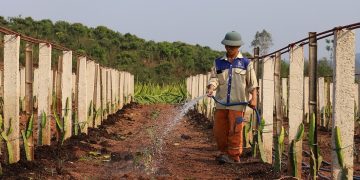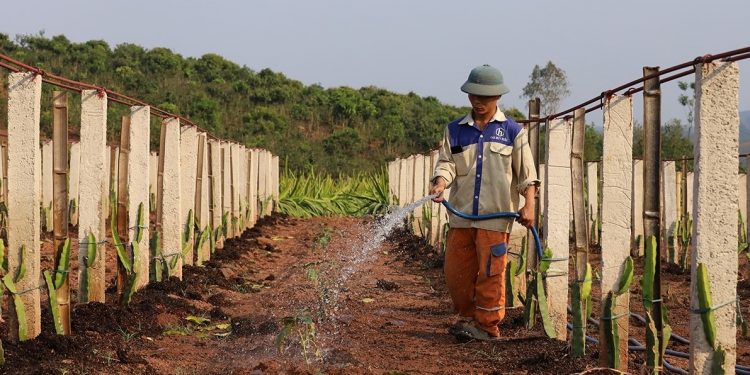With persistent heat and water depletion plaguing San La province, agricultural stakeholders have mobilized efforts to mitigate the negative impact on crop yields. With more than 38,000 hectares of agricultural land, including extensive orchards covering more than 10,000 hectares, Song Ma District has become a center for innovative water management strategies. Recognizing the need for sustainable water use, more than 50 cooperatives and businesses in the area have adopted advanced irrigation technologies, serving nearly 1,000 hectares of crops.
According to Mr. Nguyen Chi Thanh, head of the Department of Agriculture and Rural Development of Song Ma District: “Our department is actively cooperating with local authorities and irrigation companies to improve operational efficiency and deepen water channels. We advocate the adoption of rotational and drip irrigation techniques, especially for high-value crops such as lychees, mangoes and paddy, ensuring stable water supply in the face of changing climate conditions.”
These efforts represent a paradigm shift in agricultural practices, moving beyond traditional methods to ensure sustainability and resilience in the face of climate change. By optimizing water use through modern irrigation technologies, farmers not only reduce the risk of land abandonment during dry seasons, but also maintain productivity in the face of climate variability.
The transition to water-efficient irrigation systems in San La is an example of a proactive approach to climate change adaptation in agriculture. Through collaborative initiatives and technological innovation, farming communities in Song Man district are not only protecting their livelihoods, but also paving the way for a more sustainable agricultural sector. As extreme climate events become more common, implementing effective water management practices becomes a beacon of hope, ensuring food security and sustainable farming practices for future generations.































